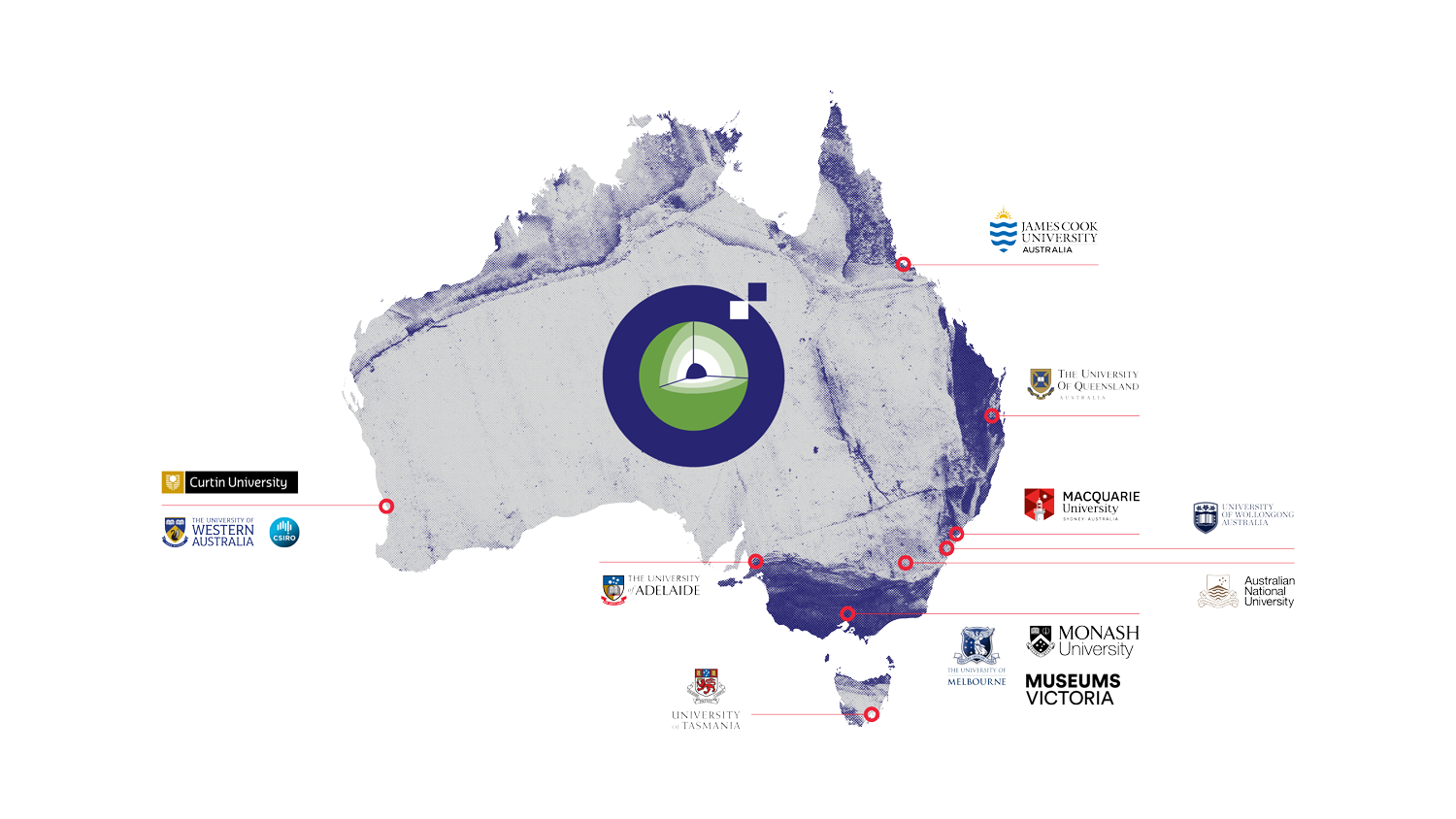Expanding the AuScope Geochemistry Network
A map of Australia showing all of the AGN partners. Image: AuScope
Through AuScope’s AGN+ Pilot Project, the AuScope Geochemistry Network (AGN) has expanded to 13 facility-based nodes from partner institutions across Australia. Recently, this expanded consortium of Earth Science institutes met in Melbourne for the first time to gather ideas on enhancing our national geochemistry research infrastructure for national benefit.
AuScope supports AGN’s expansion
The AuScope Opportunity Fund has allowed AGN to welcome eight new facility-based nodes from partner institutions. The AGN+ now includes James Cook University, The University of Queensland, University of Wollongong, Australian National University, The University of Adelaide, Monash University, University of Tasmania and The University of Western Australia.
These new partner labs will employ data scientists and contribute additional high-value data sets (e.g., mineralogy, isotope geochemistry, geochronology) to the AGN’s FAIR data platform, AusGeochem. The newly appointed scientists will receive geochemical data science training and contribute to developing harmonised data standards and workflow management practices.
AGN’s Focus
In 2019, AuScope, enabled by NCRIS, launched the AuScope Geochemistry Network (AGN). A new, grassroots community network that would maintain and strengthen the operation and growth of Australia’s geochemical research infrastructure and foster collaboration and professional development between laboratories and research end users (academia and industry). The AGN concept was developed in response to open community workshops across Australia involving academia, industry and geoscience surveys.
Key issues that AGN addresses:
Collaboration among geochemistry laboratories in asset procurement, maintenance and end-user support;
Cooperation between universities, geoscience surveys and industry in creating geochronology and isotopic maps at a national scale; and
Curation and preservation of sample and data collections of national significance
The AGN is led out of Curtin University, together with original partner nodes comprising The University of Melbourne and Macquarie University.
The Melbourne Workshop
Members of the AGN community gathered in Melbourne for our first in-person workshop. From left to right: Dr Sam Boone; Back Row: Prof Andy Gleadow, Dr Rebecca Farrington, Prof Anthony Dosseto, Dr Hayden Dalton, Dr Florian Dux, Dr Renjie Zhou. Middle Row: Dr Fabian Kohlmann, Dr Alex Prent, Dr Bryant Ware, Prof Barry Kohn, Dr Yona Jacobsen-Nebel, Dr Angus Nixon, Dr Marthe Köcking, Dr Xueying Wang, Ms Sally-Ann Hodgekiss, Ms Halimulati Ananuer. Front Row: Dr Dafne Koutamanis, Dr Yoann Greau, Dr Bei Chen, Dr Sheree Armistead, Hon Prof Lesley Wyborn. Image: Dr Sam Boone
After collaborating remotely for over two years, the expanded AGN team organised their first in-person workshop, held at The University of Melbourne, to welcome members from the new partner institutions and set goals and directions for the future of geochemistry in Australia.
“Continual development and improvement of the AusGeochem platform was recognised as an important opportunity, but so too was the drive to ensure Australia maintains and builds upon its world renowned geochemistry infrastructure.” – Dr Hayden Dalton
The AGN workshop attendees in session. Image: Dr Bryant Ware
A highlight of the workshop was the presentations from Dr Fabian Kohlmann, Managing Director of Lithodat, Dr Marthe Klöcking of University of Göttingen and coordinator of DIGIS: Digital Geochemistry Infrastructure for GEOROC 2.0, and Dr Lesley Wyborn, member of ARDC and Honorary Professor at Australian National University. Fabian detailed the latest developments of the AusGeochem platform, while Marthe and Lesley provided great insights into the international geochemistry community’s efforts to create a FAIR data ecosystem.
Overall the Melbourne workshop underscored the exciting research across the AGN and promoted opportunities for potential collaborations moving forward.
AUTHORS
Dr Hayden Dalton, Professor Brent McInnes, Dr Bryant Ware
Edited by Philomena Manifold
FURTHER READING
AusGeochem
AuScope Opportunity Fund



